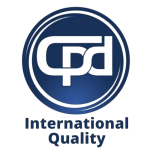Quick Overview
Continuing Professional Development (CPD) is the structured process of maintaining and enhancing professional skills across a career. In a globalised job market, CPD plays a vital role in ensuring employability, credibility, and adaptability across borders.
This blog will walk you through:
✅ What CPD is and its role in professional growth.
✅ The importance of CPD in a globalised workforce.
✅ How recognition of CPD varies across industries and regions.
✅ Key sectors with established international CPD standards.
✅ Geographic differences in CPD recognition worldwide.
✅ Steps to ensure CPD activities gain international recognition.
✅ Future trends towards harmonisation and global CPD standards.
Getting CPD accreditation recognised in different regions was just a matter of time, with more professionals working in the international market or moving across countries for career development. This is particularly important in today’s competitive job market, where professionals need to keep their job knowledge and skills up to date to maintain a competitive edge, a process known as Continuing Professional Development (CPD). CPD is defined as the learning undertaken throughout a professional’s career, and it is distinct from formal education because it focuses on developing and enhancing knowledge and skills within specific occupational contexts. Its purposes include:
- Acquiring new knowledge and skills.
- Updating or maintaining existing knowledge and skills.
- Gaining new perspectives or solutions to work-related problems.
CPD should be relevant, stimulating, and enjoyable. It can take many forms, such as training courses, workshops, conferences, and online ‘e-learning’ programmes.
However, with more professionals working in the international market or moving across countries for career development, a pertinent question comes up: Is CPD recognized internationally? This blog delves into the significance of CPD on the international platform, how CPD recognized in different regions, the importance of CPD in different industries, and what professionals should know to ensure their CPD activities are internationally recognised.
What is CPD?
Continuing Professional Development (CPD) is defined by the CPD Standards Office (2016) as a systematic approach to learning designed to help individuals improve their skills and knowledge throughout their careers.CPD is not limited to one profession or industry or sector: ‘CPD activities can be carried out in a range of industries from healthcare and education to engineering, law, finance to name but a few.’ It covers the following types of learning:
- Attending conferences, seminars, and workshops
- Completing online courses or e-learning programs
- Reading industry-relevant publications and journals
- Gaining hands-on experience in new areas of practice
- Participating in mentoring or coaching sessions
Professional bodies often require CPD to keep their members up to date with new developments in the field. Some industries and professions require members to participate in CPD, and some regulatory bodies mandate completion as a condition of certification or licensing.
Importance of CPD in a Globalized World
Today, with the growth of globalised economies, firms and professionals are no longer limited by national boundaries. Many industries operate on an international scale, and the professionals working within them are required to have knowledge of international standards and compete with global rivals. For example, professionals working in the financial, medical, or IT fields are often employed in multinational firms, or they can provide services to international clients.

The importance of CPD for professionals in today’s globalised context is that it keeps them aware of recent international developments in the field, from trends to technologies, regulations and best practices. Global CPD recognition allows professionals to:
- Enhance their employability across borders.
- Maintain credibility with international clients and partners.
- Stay competitive in industries where technological advancements and regulations are constantly changing.
However, the acceptance of CPD in the global context has always been challenging as various countries and jurisdictions have different approaches and ways of defining and measuring CPD.
Is CPD Recognised Globally?
Recognition varies from industry to industry, country to country, and even from one professional organisation to another. And though CPD has become an established concept and is practised globally, there isn’t a single, global, overarching entity that supervises CPD in all industries and regions. CPD can mean different things depending on where you are and which industry you work in.
Industry-Specific Recognition
There are also some industries where CPD is more homogenised across global markets. For example, in health care, law and finance, there are international professional bodies that define what constitutes CPD activities, such as:
- Health: In healthcare, CPD is often regulated by larger international or regional organisations such as the World Health Organization (WHO), the General Medical Council (GMC) in the UK, the American Medical Association (AMA) in the US, and often a mandatory requirement to remain current with medical research, treatments and technologies.
- Finance: This is especially true in finance, where CPD is an accepted practice everywhere because many financial professionals need to maintain their designations with organisations such as the Chartered Financial Analyst (CFA) Institute and the Association of Chartered Certified Accountants (ACCA), both of which require CPD for their members. Employers and regulators generally accept these standards.
- Engineering: the engineering sector has a more piecemeal approach to CPD where different national and regional bodies set their expectations. For example, in the United Kingdom, the Institution of Engineering and Technology (IET) and the American Society of Mechanical Engineers (ASME) both have an interest in advocating global standards for CPD.
For industries with strong global regulatory institutions, CPD is more likely to be accepted worldwide.

Geographic Variations in CPD Recognition
While CPD is one of the main components of professional development in many countries, the recognition of CPD may differ from place to place. Take a look at the paragraphs below to see how CPD is viewed in different parts of the world:
- United Kingdom: CPD is highly formalised in the UK. Many of the professional bodies that set standards for specific professions require members to complete a certain number of CPD hours per year. The UK is one of the countries with the longest-running CPD frameworks, and there are a number of independent bodies (such as the CPD Certification Service) providing third-party accreditation for CPD activities and courses. CPD is mandatory in many regulated professions, such as medicine, law and accounting, and is also widespread in the private sector – it is generally accepted by employers regardless of industry.
- United States: In the US, CPD is typically called Continuing Education (CE) or Continuing Professional Education (CPE). Similar to the UK, many professional organisations require their members to complete CE credits to maintain their licence. Still, recognition of CPD may vary depending on the state and the profession. For instance, lawyers in some states are required to fulfil CPD through the American Bar Association (ABA). Still, different bodies can govern other professions or have different requirements.
- Europe: CPD is well-established in Europe, particularly in regulated professions such as healthcare, finance, and law, although some professions have long histories of professional development (e.g., teachers) that pre-date the recognition of CPD. The European Union has also pushed for greater harmonisation of professional qualifications between member states, including the recognition of CPD activities. In many countries, each profession has its own rules about the types of CPD activities that are required. Often, activities will be recognised in one country rather than in another.
- Asia and Africa: In some instances, recognition of CPD is emerging but formalised less in Asia and Africa when compared with Western countries. In Asia and Africa, with the exception of a few countries, there is a gradual shift to CPD practices, which can be seen in some industries such as healthcare and IT. However, there is often a need for uniformity in the processes, and recognition differs from one country to another.
To sum up, while CPD is practised and endorsed worldwide, there are major geographical differences in its implementation and perception. Healthcare professionals working in international settings or those planning to move to another country should ensure that their CPD activities are recognised by the respective regulatory bodies of their target countries.

How to Ensure Your CPD is Recognised Globally
As CPD recognition is a patchwork across the globe, it is up to professionals to take action to ensure that international employers or regulators will accept their CPD. Here are some tips for making sure that your CPD receives the international recognition it deserves.
Choose Accredited CPD Providers
The single most important factor in your CPD achieving global recognition is the choice of accredited CPD activity providers. Many professional bodies and regulatory agencies will only recognise CPD activities that are accredited by an official body. In the UK, for example, the CPD Certification Service accredits training programmes and courses, demonstrating that they are of a high standard.
When choosing CPD courses or activities, select providers who are accredited by established organisations in your field, which will ensure that your CPD is more likely recognised by employers and professional bodies (both locally and internationally).
Align CPD with International Standards
It is also necessary to ensure that your CPD matches international standards so that it is likely to be recognised internationally. Most industries have standards under which the ‘participants’ in CPD activities will be guided. If you work within the finance industry, your CPD could be pursued through either the CFA Institute (which runs the Chartered Financial Analyst programme) or the Association of Chartered Certified Accountants (ACCA).
Furthermore, by keeping abreast of global trends and good practices in your field, you will induce your CPD to become more relevant to international employers. Being involved in CPD activities that relate to global developments – such as attending international conferences or participating in webinars with global experts – will also help to give your CPD a global focus.
Maintain Detailed Records of CPD Activities
Some regulatory agencies require professionals to provide evidence of their CPD activities in order to maintain licensure or certification. By maintaining detailed records of your CPD activities, including course completion certificates, course descriptions and any other documentation detailing learning outcomes and time spent on that CPD activity, you will know that your CPD will be respected internationally.
This information will allow you to demonstrate that your CPD is a required standard for potential employers or professional bodies, regardless of location. Some professionals produce CPD portfolios, which summarise their ongoing professional development and highlight key learning achievements.

Consult with Professional Bodies
If you are planning to move abroad or work internationally, make sure you get in touch with the relevant professional bodies in your target country to find out what their minimum CPD requirements are and how you should log your activities. Some countries and industries have specific CPD requirements, and professional organisations are typically best placed to advise candidates on whether their CPD activity is up to scratch.
For instance, if you are a healthcare practitioner who is moving from the UK to the US, you would need to check with the relevant medical boards if the CPD activities you have done in the UK are recognised in the US. Or, if you work in a regulated industry (e.g., law, finance, etc.) and want to work overseas, consulting with international regulatory bodies will help you to see what you need to do to maintain the status quo of your profession in the new country.
Stay Informed About CPD Developments
Recognition of CPD is also fluid, and new frameworks and regulations around CPD will continue to emerge, especially as industries globalise. It’s important to keep up to date on developments in CPD in your industry to be ahead of the curve and ensure that your CPD activities are relevant and recognised globally.
Joining professional organisations and going to conferences and webinars is a way to find out about trends and developments in CPD. Keeping abreast of what is happening in the global professional community will ensure that your CPD is up-to-date and recognised by employers and regulatory bodies.
The Future of CPD: Towards Global Standardization?
CPD is practised in almost every industry, but the absence of a global standard for CPD is a drawback for professionals working in international settings. There is, however, a growing trend towards greater standardisation and harmonisation of CPD frameworks across borders.

Meanwhile, bodies such as the International Association for Continuing Education and Training (IACET) are seeking to establish global standards for CPD so as to render CPD activities more universally comparable. At a regional level, there are developments to increase the harmonisation of professional qualifications and CPD standards across EU member states.
As more industries become internationalised and professionals increasingly work across borders, the case for CPD that is recognised internationally is likely to become stronger, and the need for more harmonised and standardised CPD frameworks, internationally accepted by employers and regulators, will increase.
Conclusion
CPD has become an integral part of the progression of the global economy. As CPD is increasingly embraced among industries and regions, the requirements and standards for CPD can vary depending on the profession and geographic location. Suppose you’re serious about international recognition for your CPD activities. In that case, it’s important to select accredited CPD providers, adhere to internationally recognised standards, and maintain detailed records of your learning activities.
The more interconnected the world becomes, the more the demand for universal CPD is likely to increase, and more efforts to provide internationally comparable CPD frameworks are being made. Having a sense of the developments in CPD and participating voluntarily in relevant PD activities that resonate with the global job market will certainly boost the employability and credibility of professionals in the highly competitive job arena.
CPD is more than a box-ticking exercise – it is a way to keep learning, progressing and staying at the cutting edge of your industry. It could be the key to unlocking the next step of your working life, whether that means working abroad or at home.

